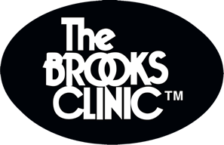Tendonitis is a common yet painful condition in which a tendon – the tissue connecting a muscle to a bone – becomes inflamed, generally caused by overuse. Usually, the pain is short-lived, and dissipates after a long rest from the activity that caused the condition in the first place.
But when the pain of tendonitis persists, it can have an adverse effect not only on your physical function, but also your emotions and overall state of mind. That, in turn, can lead to other health problems such as stress, depression, or a dependency on painkilling medications, to name a few.
But you needn’t tolerate chronic discomfort when a pain management specialist can help restore you to full mobility and enable you to maintain your quality of life.
The Benefits of Pain Management
Pain management isn’t just about medication or a single therapy. It’s a comprehensive approach specially designed for each person and often focused on your overall health, emotions, daily and work activities, and all the treatment options available.
While primary care physicians are knowledgeable about a wide variety of pain issues, they haven’t received the same level of training on specific conditions that pain management doctors have received. That includes joint and muscle pain, injuries related to work or sports, and more specifically, tendonitis.
The most common types of tendonitis are:
· Tennis elbow – an irritation of the tissue connecting the forearm muscle to the elbow.
· Golfer’s elbow – a condition that causes pain on the inner side of the elbow.
· De Quervain’s tenosynovitis – a painful condition affecting the tendons on the thumb side of the wrist.
· Achilles tendonitis – an injury of the Achilles tendon, which connects the calf muscle to the heel bone.
· Swimmer’s shoulder – Pain caused by a tendon rubbing on a shoulder blade.
· Patellar tendinitis – An injury to the tissue connecting the kneecap to the shin bone.
· Tendonitis of the wrist – The swelling of tendons connecting muscle to bone in the wrist.
Pain management specialists are equipped to provide numerous forms of treatment for tendonitis:
· Pain relievers. Aspirin, naproxen sodium (Aleve), or ibuprofen (Advil, Motrin IB, etc.) may relieve discomfort associated with tendonitis. Topical creams with anti-inflammatory medication may also be effective in relieving pain without the potential side effects of taking anti-inflammatory medications by mouth.
· Corticosteroids. Injections of cortisone reduce inflammation and can help ease pain. However, they are not recommended for tendonitis lasting more than three months, as repeated injections may weaken a tendon and increase your risk of rupturing the tendon.
· Platelet-rich plasma (PRP). PRP treatment involves taking a sample of your own blood and spinning the blood to separate the platelets and other healing factors. The concentrated solution is then injected into the area of chronic tendon pain. Although research is still underway, PRP injection has shown great promise in the treatment of many chronic tendon conditions.
· Physical therapy. A program of specific exercises designed to stretch and strengthen the affected muscle-tendon unit might prove beneficial. One treatment shown to be effective for many chronic tendon conditions is eccentric strengthening, which puts the emphasis on contracting a muscle while it’s lengthening.
· Surgery and other procedures. If physical therapy fails to resolve your symptoms, the following surgical procedures might be suggested by your pain management doctor:
- Dry needling. In this procedure, small holes are made in the tendon with a fine needle to stimulate the factors involved in tendon healing.
- Ultrasonic treatment. This is a minimally invasive procedure in which a small incision is made, allowing a special device that removes tendon scar tissue with ultrasonic sound waves is inserted.
- Surgical repair. This may be needed, depending on the severity of your tendon injury, especially if the tendon has separated from the bone.
Help Is Just a Call or Click Away
Don’t let tendonitis leave you in constant discomfort or keep you from doing the things you love to do. Finding the right interventional pain management clinic in Oklahoma can make all the difference. To learn more about your pain relief options, call The Brooks Clinic at (405) 400-0877 or schedule an appointment online.




